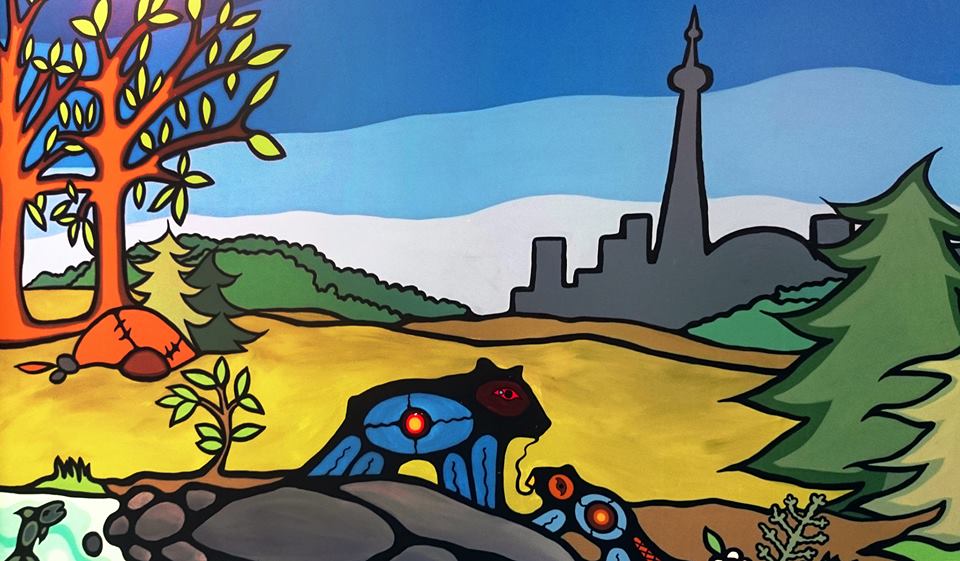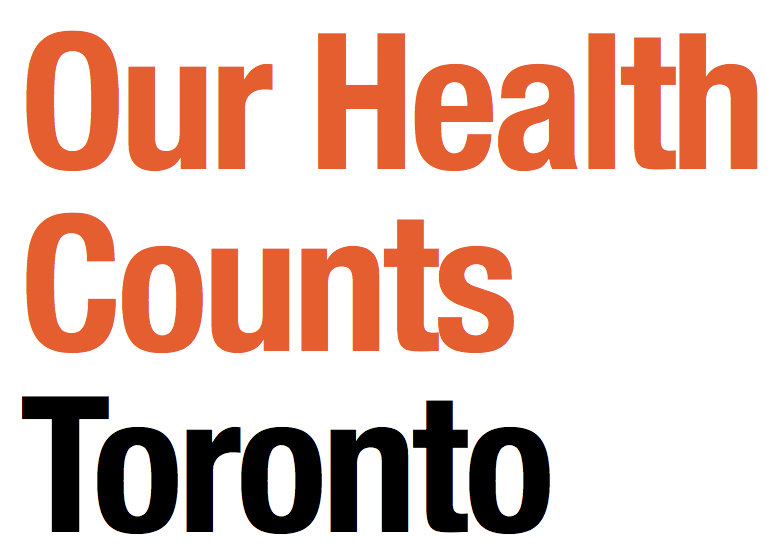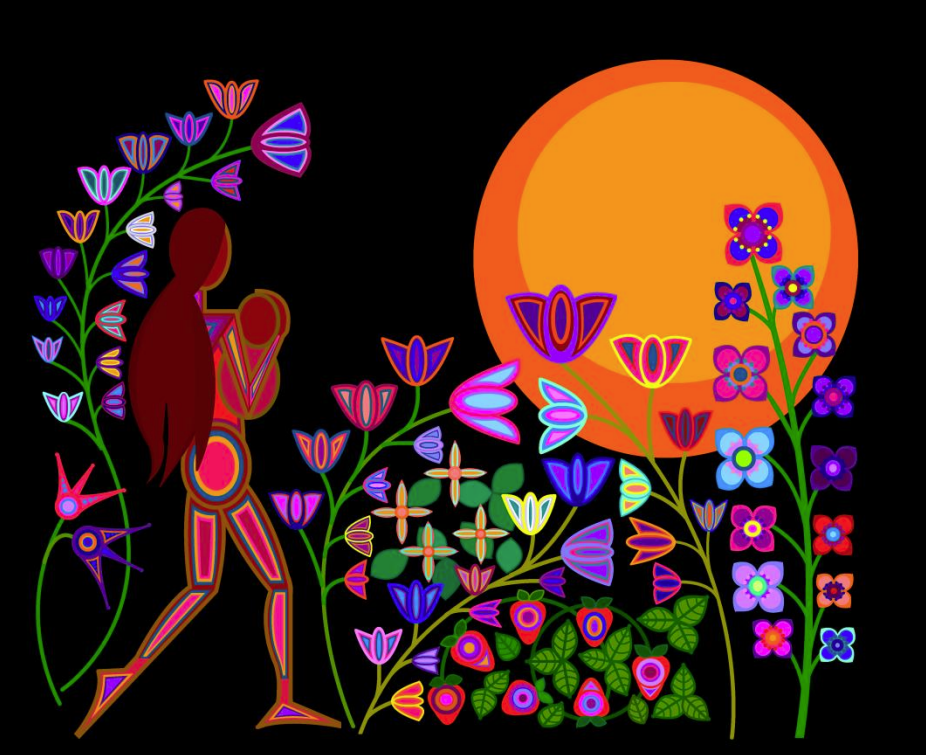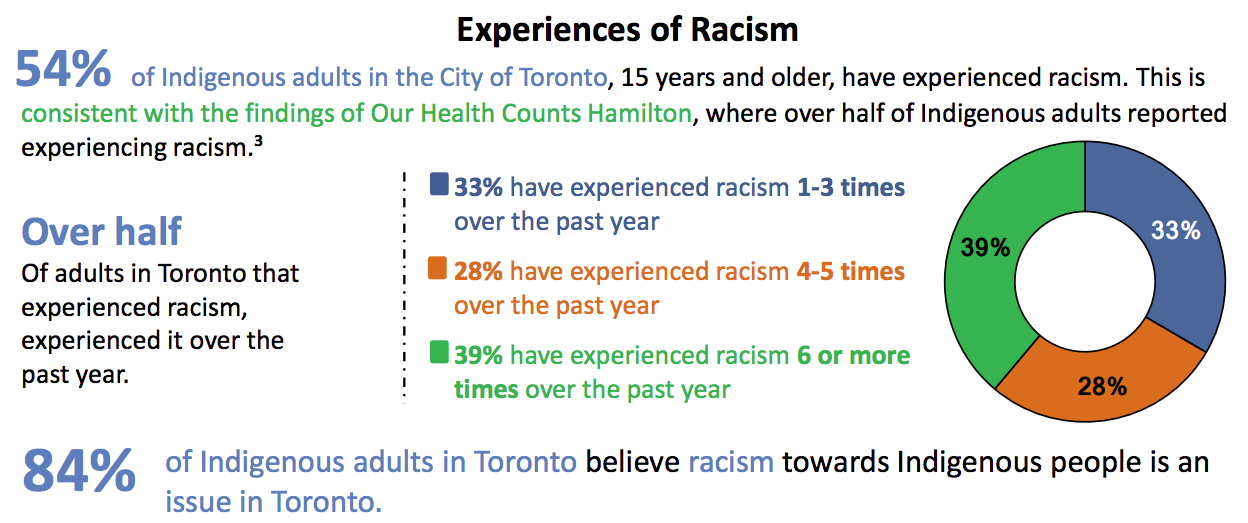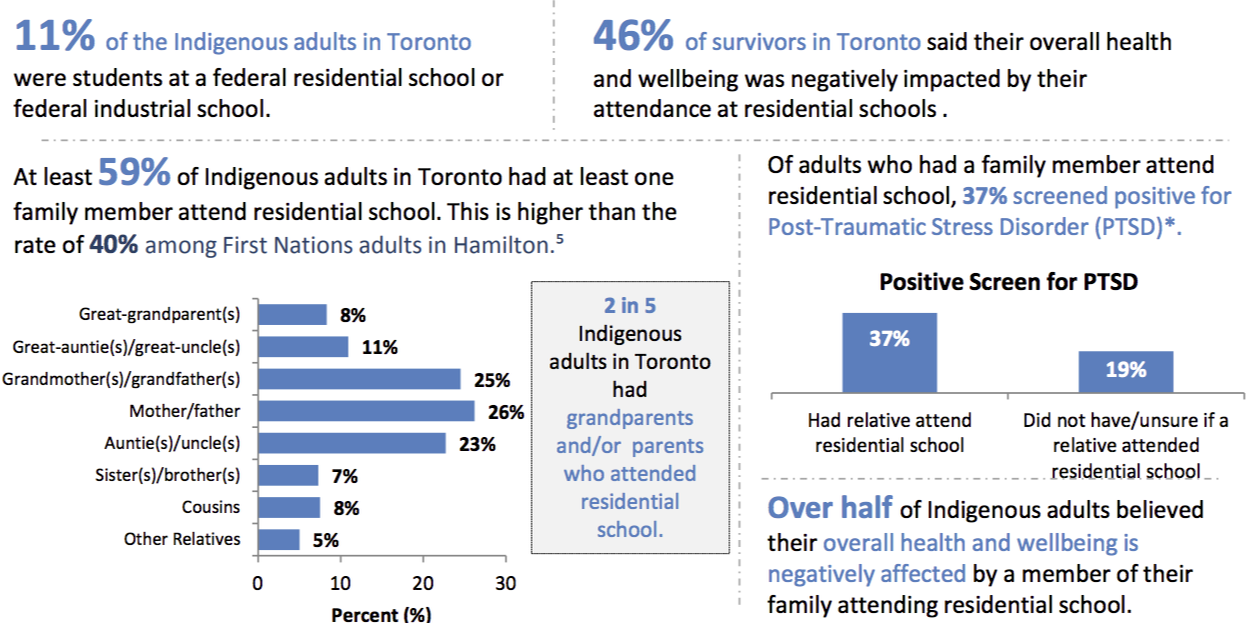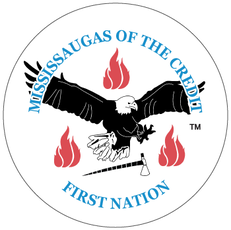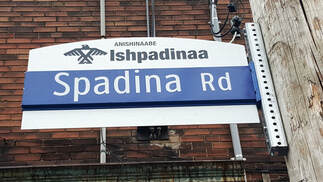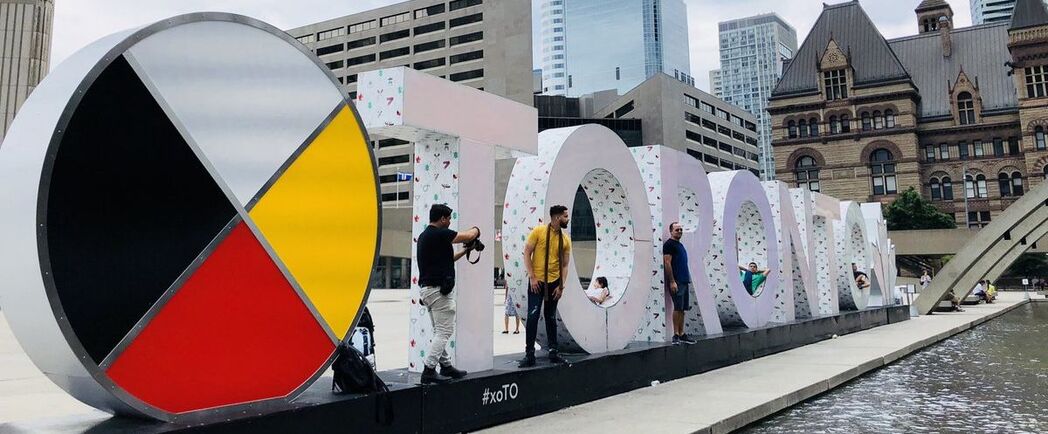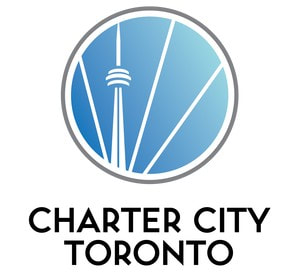|
Toronto is home to the largest Indigenous population in the country.
Toronto has been home to a number of Indigenous nations for an estimated 11,000 years, including at various times the Mississaugas of the Credit, the Anishnabeg, the Chippewa, the Haudenosaunee and the Wendat peoples. Today, it is home to approximately 70,000 First Nations, Inuit and Métis people--by far the largest gathering place of Indigenous people in Canada.
Since contact, colonial and Canadian governments have not treated Indigenous nations in this area fairly or justly. For example, the Treaty recognizing the Mississauga’s First Nations land was breached by the Canadian government, forcing the Mississauga’s to relocate from what became Toronto onto lands provided by the Six Nations (Haudenosaunee) of the Grand River.
Our city has a responsibility to be a major actor in addressing issues of importance to its Indigenous residents, and must play a leadership role in addressing those issues, in collaboration with Indigenous peoples and other levels of government. There is an urgent need for a new relationship between the city and its diverse Indigenous population.
Since contact, colonial and Canadian governments have not treated Indigenous nations in this area fairly or justly. For example, the Treaty recognizing the Mississauga’s First Nations land was breached by the Canadian government, forcing the Mississauga’s to relocate from what became Toronto onto lands provided by the Six Nations (Haudenosaunee) of the Grand River.
Our city has a responsibility to be a major actor in addressing issues of importance to its Indigenous residents, and must play a leadership role in addressing those issues, in collaboration with Indigenous peoples and other levels of government. There is an urgent need for a new relationship between the city and its diverse Indigenous population.
A 2016 study (Our Health Counts Toronto) found that Indigenous peoples in the city face a wide array of very serious socio-economic challenges. 87% of Indigenous Torontonians fall below the Low Income Cut Off. Some 63% are unemployed.
Indigenous residents generally report poorer health and mental health outcomes, a much greater incidence of homelessness or under-housing, poor food security and nutritional issues and involvement of child protection agencies in their families.
Over a quarter have a family member or close friend who has gone missing. A majority of Indigenous adults in the city have done some time in prison. A large majority reports having experienced incidents of racism.
The lasting, generational effects of the residential school system, land loss and cultural dislocation continue to be serious determinants of the quality of life of Indigenous Canadians, including those in Toronto.
Indigenous residents generally report poorer health and mental health outcomes, a much greater incidence of homelessness or under-housing, poor food security and nutritional issues and involvement of child protection agencies in their families.
Over a quarter have a family member or close friend who has gone missing. A majority of Indigenous adults in the city have done some time in prison. A large majority reports having experienced incidents of racism.
The lasting, generational effects of the residential school system, land loss and cultural dislocation continue to be serious determinants of the quality of life of Indigenous Canadians, including those in Toronto.
|
There is much work to be done to rectify these historic wrongs and close the socio-economic gap between Indigenous and non-Indigenous peoples in the city.
It’s beyond the scope of the Charter City proposal to make informed and qualified recommendations for specific actions to build a new relationship between the city and its Indigenous population and to improve the quality of life conditions of Indigenous peoples. We leave those to a recommended process led by Indigenous leaders and representatives in collaboration with government leaders and policy experts. To that end, the reports of the Truth and Reconciliation Commission of Canada outline some of the ways in which local government can be of assistance in effective ways, including, but not limited to:
There are likely other actions that can be taken to build a new relationship and close the gap. |
We recommend that any working group formed to negotiate a City Charter between the city and the province of Ontario should include meaningful Indigenous representation at the highest level. Consultation and reconciliation with Indigenous communities, and charting a new relationship between the city and its First Nations, Métis and Inuit populations should be a high priority of the city and the province (with appropriate involvement of the government of Canada) in the Charter City process.


